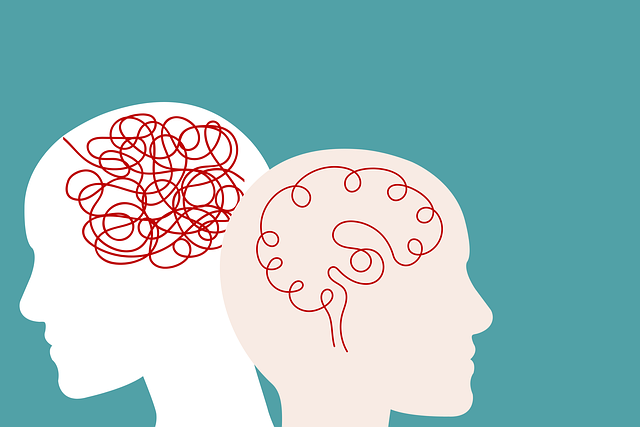Mastering Crisis Intervention with Lafayette Blended Families Therapy
Lafayette Blended Families Therapy provides specialized crisis intervention and support for complex…….
In the intricate tapestry of family dynamics, blended families have emerged as a growing phenomenon, presenting both unique challenges and opportunities for therapeutic exploration. This article delves into the realm of Lafayette Blended Families Therapy, a specialized approach designed to navigate the complexities these families face. By examining its core principles, global reach, and impact, we aim to shed light on why this therapy is not just a niche concept but a crucial tool for fostering healthy, resilient blended households. Through this exploration, readers will gain insights into the significance of such therapeutic practices in modern society.
Lafayette Blended Families Therapy refers to a comprehensive psychological and social support system tailored to blended families—those consisting of step-parents, step-siblings, and children from previous relationships. It involves a multi-faceted approach addressing the complex emotional, relational, and adjustment issues that often arise in these families. The core components include:
The concept of blended families has evolved over time, reflecting societal changes in family structures. Historically, step-families were often viewed as temporary arrangements, but modern trends show a growing acceptance and permanence to these unions. This shift has prompted the development of specialized therapies to address unique challenges. Lafayette Blended Families Therapy emerged as a response to the increasing demand for support, recognizing that traditional family therapy models may not adequately cater to the complexities of blended households.
This therapy’s significance lies in its ability to:
The influence of Lafayette Blended Families Therapy extends far beyond local communities, with key trends shaping its global trajectory:
| Region | Trends | Impact |
|---|---|---|
| North America | Increasing acceptance of blended families; more diverse family structures. | Higher demand for specialized therapy services, leading to expanded access and cultural adaptability. |
| Europe | Rising numbers of same-sex couples adopting children, contributing to blended family formations. | Growing awareness and integration of therapy within healthcare systems, ensuring better support for these families. |
| Asia Pacific | Cultural shifts towards modern family norms; rising divorce rates leading to more blended households. | Localized therapy models adapted to diverse cultural contexts, offering tailored support. |
| Middle East & Africa | Changing social norms; growing acceptance of step-families in some communities. | Limited access to specialized services, highlighting the need for regional training and awareness. |
These trends demonstrate the universal need for effective blended family therapy, prompting international collaboration and knowledge sharing.
The economic landscape surrounding Lafayette Blended Families Therapy is multifaceted, impacting both service delivery and family well-being:
Private investments in blended family therapy startups have been steady, reflecting the market’s potential. These investments often focus on technology integration, expanding service reach, and developing evidence-based models.
Effective therapy can positively impact families’ economic well-being:
Technology plays a pivotal role in modern therapy practices, enhancing accessibility and effectiveness:
These advancements not only expand service accessibility but also personalize treatment plans, ensuring more effective outcomes.
The regulatory landscape for Lafayette Blended Families Therapy varies globally, but key policies shape its practice:
Despite its benefits, Lafayette Blended Families Therapy faces several challenges:
Actionable Solutions:
The Johnsons, a blended family with two biological children and two step-children, sought therapy due to escalating conflicts between the step-parents and children. Through individual sessions, they explored underlying fears and insecurities. Couple counseling helped them establish clear boundaries and communication norms. Family sessions fostered open dialogue, leading to a shared decision-making process. Over time, the family’s bond strengthened, and children felt more secure in their new arrangement.
The Lee family, composed of a divorced mother with two children and her new husband and stepchildren, faced challenges adjusting to life as a blended family. Parenting skills training equipped the parents with tools to manage behavior and resolve conflicts. Support groups provided a safe space for sharing experiences and strategies. As a result, the family experienced improved communication, increased understanding, and stronger relationships.
The future of Lafayette Blended Families Therapy holds promising possibilities:
Lafayette Blended Families Therapy is more than a specialized service; it is a lifeline for many blended families navigating complex emotional and relational terrain. Its global impact and evolving nature highlight its importance in modern society’s diverse family structures. By addressing challenges, embracing technological advancements, and advocating for policy support, this therapy can continue to flourish, fostering healthier, happier blended households worldwide.
Q: Is Lafayette Blended Families Therapy right for every blended family?
A: While it offers valuable support, not all families may require or benefit from this specific approach. Individual needs vary, and some families might find success with general family therapy or support groups alone.
Q: How do I know if my family needs professional help?
A: Look for signs such as persistent conflict, emotional distress, or behavioral issues within the family. If these challenges persist despite attempts at resolution, seeking professional guidance is advisable.
Q: Can blended families access therapy remotely?
A: Telehealth services make remote therapy possible, allowing families in diverse locations to connect with therapists online. This flexibility is particularly beneficial for those with limited mobility or living in rural areas.
Q: How does therapy help with step-parent and child relationships?
A: Therapy provides a safe space for open communication, helping step-parents understand each other’s perspectives and children express their feelings. It fosters empathy, strengthens bonds, and promotes healthy relationships.

Lafayette Blended Families Therapy provides specialized crisis intervention and support for complex…….